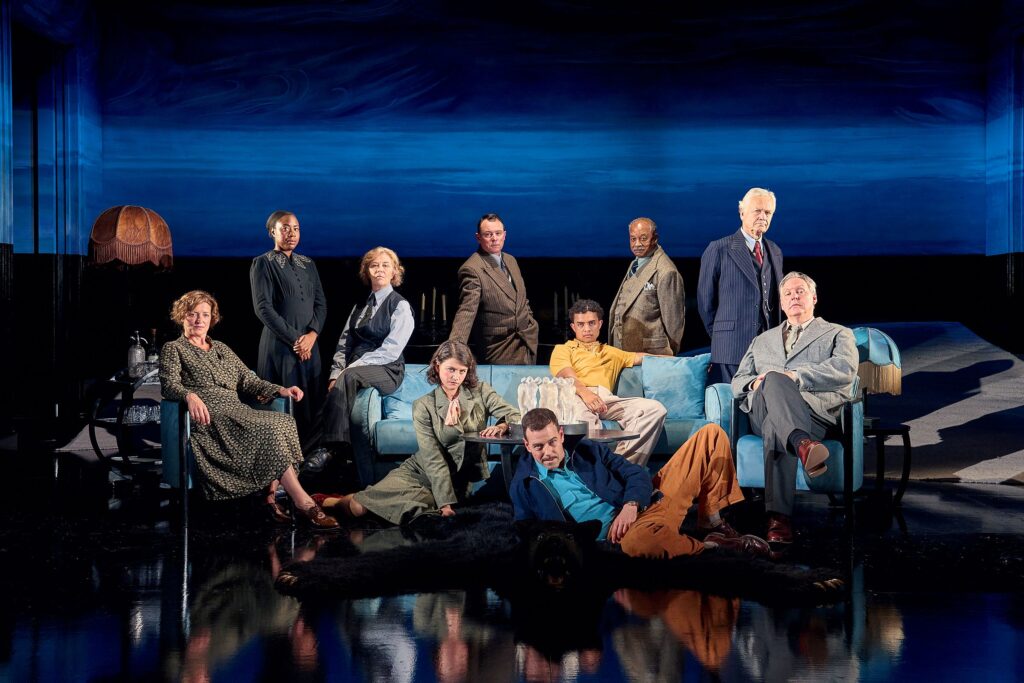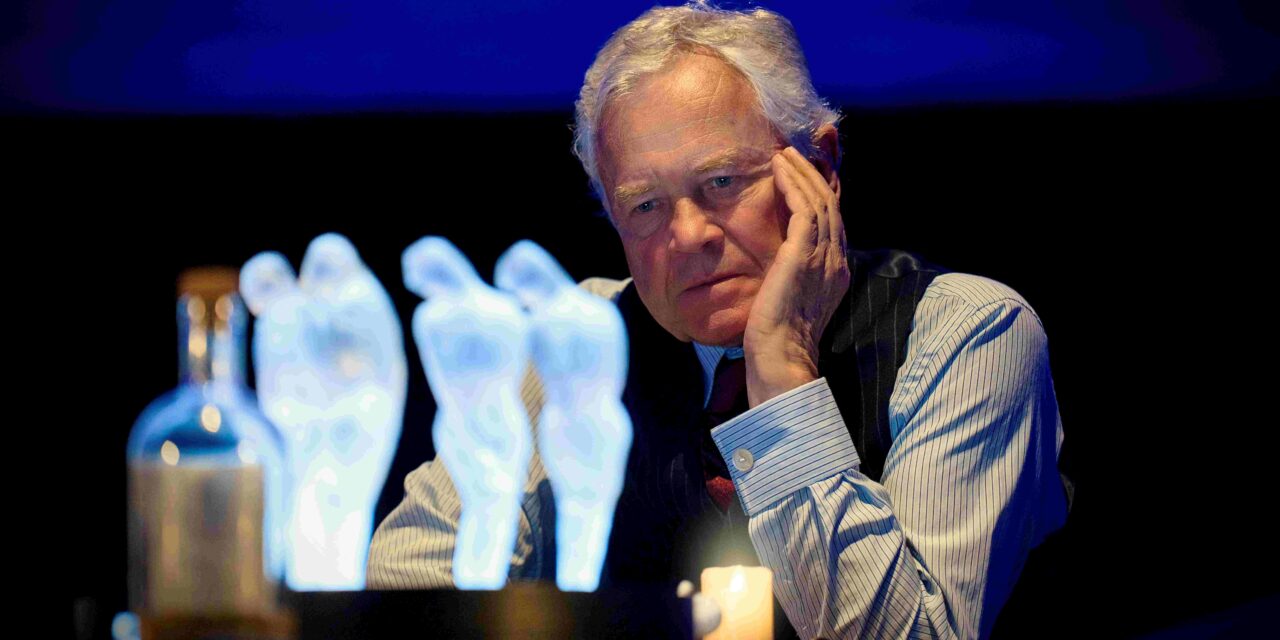
3 – 7 October 2023
To give you some idea of the enduring popularity of Agatha Christie, over a billion copies of her novels have been sold in English to date, with another billion in languages across the world. And Then There Were None is not only her most popular novel, but is also the bestselling crime novel of all time. Recent film adaptations of some of her best-known stories, starring Kenneth Branagh as Hercule Poirot, have fuelled the latest resurgence in her popularity, and tonight’s opening show at the Everyman was sold out. It is fair to say expectations of this latest stage adaptation are high.
Written in 1939 as the world stood on the brink of a devastating global war, Christie’s darkest and most violent tale explores our ageless and morbid fascination with crime, specifically murder. Director Lucy Bailey invites us to explore our “appetite for, and attraction to, horror – to things we can’t imagine doing ourselves”, and there is much to recommend in her latest incarnation of arguably Christie’s finest work.
Against the backdrop of Hitler’s menacing rise, eight strangers are lured to the remote Soldier Island off the coast of Devon by the mysterious and unseen Mr and Mrs Owen. What unfolds over the next two acts is an unravelling of their personal secrets as, one by one, the unwitting visitors face judgement for their historical crimes. It is as much a ‘whydunnit’ as a ‘whodunnit’, and there are some excellent individual performances amongst Bailey’s cast: Sophie Walter excels as an increasingly neurotic Vera Claythorne, David Yelland brings a touch of class and panache as retired Judge Wargrave and Bob Barrett, especially in the second half, is a believable and suitably ambiguous Doctor Armstrong.
Mike Britton’s set design is highly effective, with the increasingly chaotic and disordered stage mirroring the fractious breakdown of the remaining characters as the tension rises and the bodies start to pile up. Clever use is made of a number of key props – a flickering chandelier symbolising the characters’ dwindling hopes before crashing to the ground – while Elizabeth Purnell’s use of sound effects and music sets us increasingly on edge as the tale develops. Christie’s clever plot twist as the mystery reaches its dramatic denouement is as satisfying today as it has always been.
But perhaps the most worrying crime of all is some very amateurish acting from some of the cast, who at times descend into caricature and serve only to detract from everything the show does well as a consequence. In an attempt to freshen up the narrative for a contemporary audience, Bailey experiments with gender roles, recasting resident butler and housekeeper, Mr and Mrs Rogers, as two women. Furthermore, certain exclamations have been replaced with more modern profanities. And yet these unnecessary tweaks seem at odds with an otherwise largely traditional retelling, creating the wrong kind of tension.
Ultimately, our timeless love of the murder mystery genre stems from our innate need to see justice prevail, for good to triumph over evil, for wrongdoings to not go unpunished and for order to be restored. However, this time there is no Poirot or Miss Marple to ensure this happens: set within the symbolic microcosm of Soldier Island in order to explore wider global themes, the apocalyptic themes of the tale resonate perfectly with a modern audience who live in a society which often feels like it is coming apart at the seams. It is a bleak and dispiriting tale, but one which feels as relevant today as it has ever done. Whilst this production is far from perfect, it is, at least, a reasonable stab.
★★★☆☆ Tony Clarke 3 October 2023
photo credit @ Manuel Harlan


